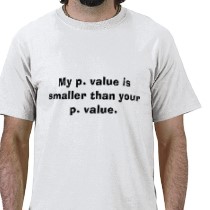Earlier this year I passed a significant milestone: five years as a freelance editor. Happy birthday Express Editing Writing and Research! I wish I could report that the business and I celebrated in some way, maybe sharing an expensive bottle of champers or streaking around the block … although, I was on holiday in Cyprus on the 1st of April, so I suppose that’s an implicit celebration of the business thriving.
Five years as a sole trader, a small businessman – something I never thought I’d call myself. Five years ago I was simultaneously excited and apprehensive at the thought of having to find my own projects and generate my own salary, but I soon found being my own boss and being responsible for my own time suits me. It’s at least partially about self-worth. People value my expertise, they tell others, they become repeat clients, and there’s a correlation between effort and reward that isn’t so apparent in my research job. A dozen or so years in the highly competitive Australian medical research sector, publishing in quality journals and getting grants but consistently failing to reach the first rung of the fellowship ladder, gave my self-esteem a bit of a battering. I found the constant rejection corrosive; I was always worrying about my career.
Now I love working for myself, and particularly from home. I like being able to see the sky and our garden and the neighbour’s huge palm tree when I look away from the screen. The flexibility is priceless. If I want to go for a ride or run at 11am, I do; I can help a friend renovate or get a mid-morning haircut; if we need a tradie or a parcel is being delivered, I’m here; I can take girl #2 to school and I’m home when both of them get back. I even enjoy doing the washing or emptying the dishwasher as a break from the keyboard.
The work itself can be very stimulating. Occasionally I get something that’s a joy to read. I learn a lot from the documents I edit, particularly the PhD theses, and have racked up quite a few new words (e.g., ‘gibbous’, ‘apotropaic’). Many clients are extremely grateful for my suggestions, so I get some direct affirmation of worth as well as the cash.
Of course, working for yourself has its minuses. Sometimes I have to work late at night or on weekends to meet a deadline. Some of the documents I edit are eye-glazingly dull; others are written so astoundingly, unbelievably badly they offer no reading pleasure at all. The money side of it can be a trial. I had never realised how difficult it is to compensate for all the benefits of being an employee. Sick leave, long service leave, holidays, superannuation, insurance – I have to cover it all myself. I had only three jobs in my first year of freelancing; thankfully they’ve been arriving increasingly steadily since, and now it’s rare that I have less than a few weeks of work lined up. Nevertheless, lean periods do occur, and they’re frustrating for someone who likes to be busy and to see his labours bear fruit. I just have to remind myself that lumpy workflow is in the nature of freelancing, and resolve to work harder next time I’m awash with projects.
In summary, freelancing may not be as financially rewarding as being a salaried employee, but the freedom is worth it.

